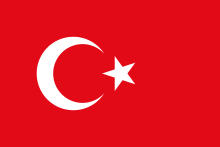
The 1964 Winter Olympics, officially known as the IX Olympic Winter Games and commonly known as Innsbruck 1964, were a winter multi-sport event which was celebrated in Innsbruck, Austria, from January 29 to February 9, 1964. The city was already an Olympic candidate, unsuccessfully bidding to host the 1960 Games. Innsbruck won the 1964 Games bid, defeating the cities of Calgary in Canada and Lahti in Finland. The sports venues, many of which were built for the Games, were located within a radius of 20 km (12 mi) around Innsbruck. The Games included 1,091 athletes from 36 nations, which was a record for the Winter Games at the time. Athletes participated in six sports and ten disciplines which bring together a total of thirty-four official events, seven more than the 1960 Winter Olympic Games. The luge made its debut on the Olympic program. Three Asian nations made their Winter Games debut: North Korea, India and Mongolia.

Athletes from the Socialist Federal Republic of Yugoslavia competed at the 1964 Winter Olympics in Innsbruck, Austria. Yugoslavia returned to the Winter Olympic Games after having missed the 1960 Winter Olympics.

Belgium competed at the 1964 Winter Olympics in Innsbruck, Austria, returning to the Winter Games after missing the 1960 Winter Olympics.

Greece competed at the 1964 Winter Olympics in Innsbruck, Austria. The nation returned to the Winter Games after boycotting the 1960 Winter Olympics.

Romania competed at the 1964 Winter Olympics in Innsbruck, Austria. The nation returned to the Winter Games after having boycotted the 1960 Winter Olympics due to the U.S. ban imposed to East Germany.

Argentina competed at the 1964 Winter Olympics in Innsbruck, Austria.

Spain competed at the 1964 Winter Olympics in Innsbruck, Austria.
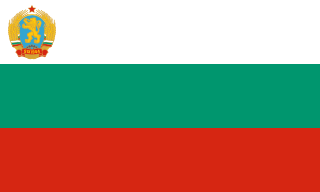
Bulgaria competed at the 1964 Winter Olympics in Innsbruck, Austria.

Chile competed at the 1964 Winter Olympics in Innsbruck, Austria.

Liechtenstein competed at the 1964 Winter Olympics in Innsbruck, Austria.

Iceland competed at the 1964 Winter Olympics in Innsbruck, Austria.

Lebanon competed at the 1964 Winter Olympics in Innsbruck, Austria.
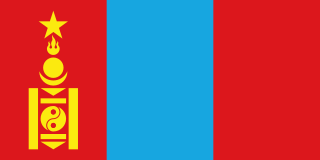
Mongolia competed in the Winter Olympic Games for the first time at the 1964 Winter Olympics in Innsbruck, Austria.
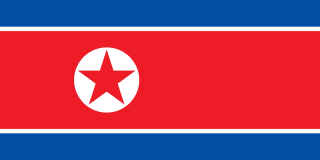
North Korea competed as North Korea at the 1964 Winter Olympics in Innsbruck, Austria. It was the first time that the nation was represented at any Olympic Games. Han Pil-hwa is the first Winter Olympic medalist from either Korea before South Korea won its first winter medals in 1992 starting with Kim Ki-hoon.

Ivory Coast has sent athletes to all Summer Olympic Games held since 1964 except for 1980 which it boycotted in protest of the Soviet invasion of Afghanistan. The country first won a silver medal in the men's 400 metres in 1984. In 2016, the country won its first gold and bronze medals in Taekwondo. No athletes from Côte d'Ivoire have competed in any Winter Olympic Games.

Senegal has sent athletes to all Summer Olympic Games held since 1964. Unlike most surrounding nations, Senegal has never missed any Summer Olympics since its independence. Only once has the country won an Olympic medal: Amadou Dia Ba, who won a silver medal in the men's 400 metre hurdles in 1988. However, Abdoulaye Seye, representing France, won a bronze medal in the 200 metres in 1960, just two months after the short lived Mali Federation gained independence and a few days after Senegal seceded from the federation. Senegal will host the 2026 Summer Youth Olympics in Dakar.

Madagascar first entered the Olympic Games in 1964 and has sent athletes to every games apart from 1976 and 1988. The largest group the country ever sent to an Olympic games was 10 in 2000. They have never won a medal. Jean-Louis Ravelomanantsoa reached the final of the men's 100 metres in the 1968 Summer Olympics and finished eighth.

The Republic of the Congo, competing as Congo, first participated at the Olympic Games in 1964, and has sent athletes to compete in most Summer Olympic Games since then. Congo missed the 1968 Games and boycotted the 1976 Games along with most other African nations. Congo has never participated in the Winter Olympic Games.

Sudan first participated at the Olympic Games in 1960, and has sent athletes to compete in most Summer Olympic Games since then. The nation did not attend the 1964 Games in Tokyo, Japan, boycotted the 1976 Summer Olympics along with most African nations, and participated in the American-led boycott of the 1980 Summer Olympics. The nation has never participated in the Winter Olympic Games.
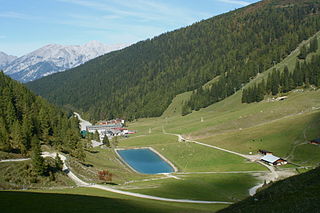
Axamer Lizum is a village and ski resort in Austria, located southwest of Innsbruck in the state of Tyrol. At the 1964 Winter Olympics, it hosted five of the six alpine skiing events: women's downhill, and men's and women's slalom and giant slalom. Men's downhill was held at Patscherkofel. Twelve years later in 1976, it hosted exactly the same alpine skiing events.
